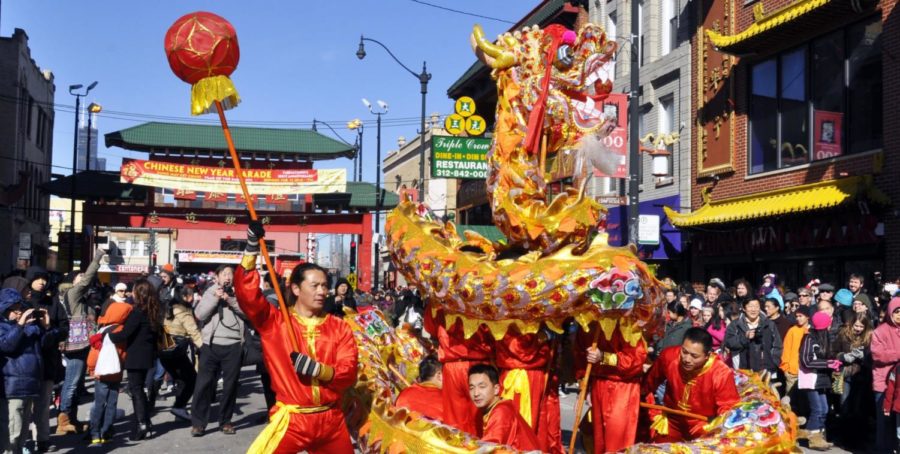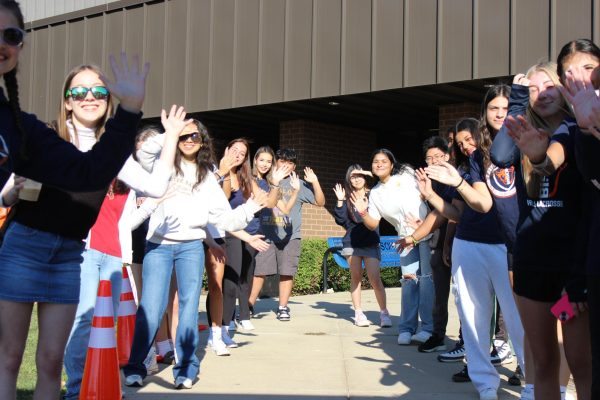Annual Chinese New Year traditions sparks celebrations in Chicago
The Chinese New Year, also known as the Lunar New Year or Spring Festival, is one of the most popular celebrated Chinese holidays. The centuries-old tradition honors deities and ancestors, and much of the celebration centers around life at home, time for relaxation and family bonding.
Traditionally, homes are cleaned, gifts are exchanged and red paper lanterns are hung to welcome and bring good luck. This year, Chinese New Year occurs on Fri., Feb. 16. Two parades celebrate the holiday: the Argyle Street Lunar New Year Parade on Sat., Feb. 24 and the Chinatown Lunar New Year Parade on Sun., Feb. 25.
“To me and to most Chinese people, the Chinese New Year marks the beginning of a new hope for the future,” Moy said. “The Chinese New Year is most like Christmas, where families come together to celebrate hope, to give and receive forgiveness, and to give gifts of love and gratitude.”
Traditionally every family cleans their house in order to sweep away any ill-fortune and to make way for incoming good luck. On the evening of the first day, families gather to feast and light fireworks. On the 15th day of the new year, lanterns are hung to symbolize the ending of winter’s darkness. This Lantern Festival includes the hanging of specific red lanterns on doors and windows.
Perceiving the animal associated with the year and what type of clothing they wear is essential in getting yourself a head start towards the new year. Red is the traditional color to wear on Chinese New Year because in Chinese culture, red is associated with good fortune.
“Fish is often a traditional food eaten on Chinese New Year because in Mandarin, fish is considered lucky because it sounds similar to luck,” senior Gus Shahatit said. “People in China commonly believe that by eating fish they will be blessed with a lucky year.”
Every year, an animal is chosen to correlate with. Using the lunar calendar, which originated around 3,500 years ago, the ancient people developed the Chinese Zodiac. There are 12 animals in the Chinese zodiac and the animal for this past year was the rooster. The animal for the upcoming new year is the dog.
“In China, a dog is best known for its loyalty and playfulness,” sophomore Rachel Sowa said. “As a result, it is said that if you were born in the year of the dog you will believe to possess traits of loyalty and honesty.”
Unlike in America, Chinese New Year is celebrated over a span of 15 days.
“Chinese New Year is much more than just a celebration of the clock turning over midnight, more than entering into a new year. It starts on the first new moon of the first new year and end on the first full moon of the new year,” Moy said. “The entire country is on holiday for 3 weeks and most businesses are closed with a mass human migration to return home at this time each year, and it’s a pretty nice time in my opinion.”
While all Chinese people gather in February across the crowded streets of Chicago, most restaurants in Chinatown will serve some special dishes for the new year with festivals crowding the town.
“I love the cultural diversity of Chicago,” Sowa said. “It’s an amazing experience to be immersed in an entirely different way of life. It also allows immigrants to have a recognizable center that makes them feel more at home.”
Having an authentic, hands-on experience with an important piece of Chinese culture can be embraced anywhere, but to have it be brought to life by the floats and the many traditions celebrated all over such a large city like Chicago brings much more awareness to what Chinese New Year has to offer.
“Chinese New Year is infused with so many cultural elements that you can’t help smiling each time you think about all of its celebrations,” Shahatit said. “Despite our differences as people, we all share one common trait: sharing each other’s company on the holidays, whether it be Christmas, Hanukkah, or Chinese New Year.”











